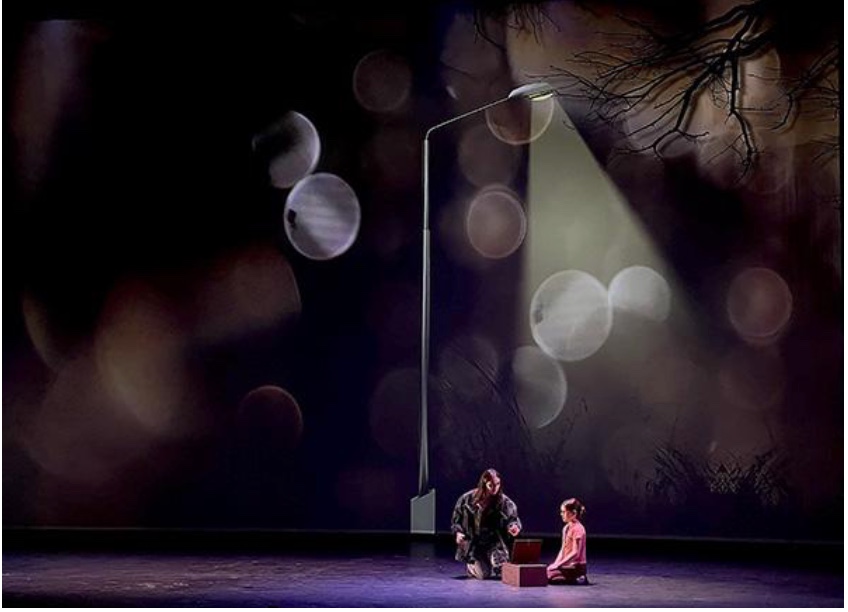by Mike Telin

On Friday, February 2 at 8:00 pm in the Kleist Center for Arts & Drama, Baldwin Wallace Opera will present Taking Up Serpents. With a score by Kamala Sankaram and an original story inspired by librettist Jerre Dye’s roots in the Deep South, the opera tells the story of 25-year-old Kayla, the estranged daughter of a fire-and-brimstone preacher who is dangerously bitten by one of his own snakes. Kayla’s journey home forces her to confront her troubled upbringing.
The production is directed by Scott Skiba, and Dean Buck conducts the chamber ensemble. Performed in one 65-minute act, Taking Up Serpents will be sung in English with English supertitles. Commissioned by Washington National Opera, here the work will receive its fourth production and its collegiate premiere. The run will continue on Saturday, February 3 at 3:00 and 8:00 pm, and on Sunday at 3:00 pm. Tickets are available online. Audiences are invited to stay for a talk-back with the creative team following each performance.
In a recent Zoom conversation Skiba said that he’s pleased to continue BW’s relationship with the composer and librettist. “I was searching for composers to be part of our Operas [in Place] project, and Kamala was highly recommended, so I reached out to her.”
It was during the creation of Sankaram’s and Dye’s Virtually Dead, one of the nine “micro operas” featured in Operas [in Place] — a project which just won the Award for Digital Excellence in Opera from Opera America — that Skiba was made aware of Taking Up Serpents.
“I remember Kamala and Jerre saying that they were going to Chicago because the Chicago Opera Theater was mounting a production of it, but that’s when I first heard about it. Any opportunity I have to promote, produce, and develop the work of female composers or composers of color — any underrepresented voices in opera — is important to me. And Serpents was also a cool fit because of that previous collaboration.”

When preparing the students for their roles, Skiba reminded them that they can’t judge what’s happening. “The work of an actor is to ask yourself how you would behave if this were true.”
To capture an Appalachian sound, Sankaram’s score includes Shape-Note singing, and she requests no vibrato. “Kamala is brilliant, and the extended vocal techniques she uses aren’t there just to be different, but to organically tell the story. And in addition to being a talented composer and teacher, she’s also a talented vocalist, so she understands the instrument — she can do all the things that she’s writing,” Skiba said.
“The same is true of her orchestral writing. She incorporates guitar, electric guitar, and whirly tubes, which you might think are just an eccentric choice to be different, but they have a really cool effect. There are times that it sounds a little roots music-esque, and it’s also very cinematic.”
The director said it’s great to watch the young singers embrace all that the score asks of them. “Opera has evolved and is evolving. Some of the cast may enjoy bel canto or are more interested in early or contemporary music, so one of the things that’s exciting to me is that this gives them the ability to explore. And having a voice faculty that trains not only vocal performance, but also music theater is helpful.”
New opera is important to Skiba. “I love it. I love getting into it, and to see the students take on something they can put their own stamp on is always exciting.”
Published on ClevelandClassical.com January 30, 2024.
Click here for a printable copy of this article


